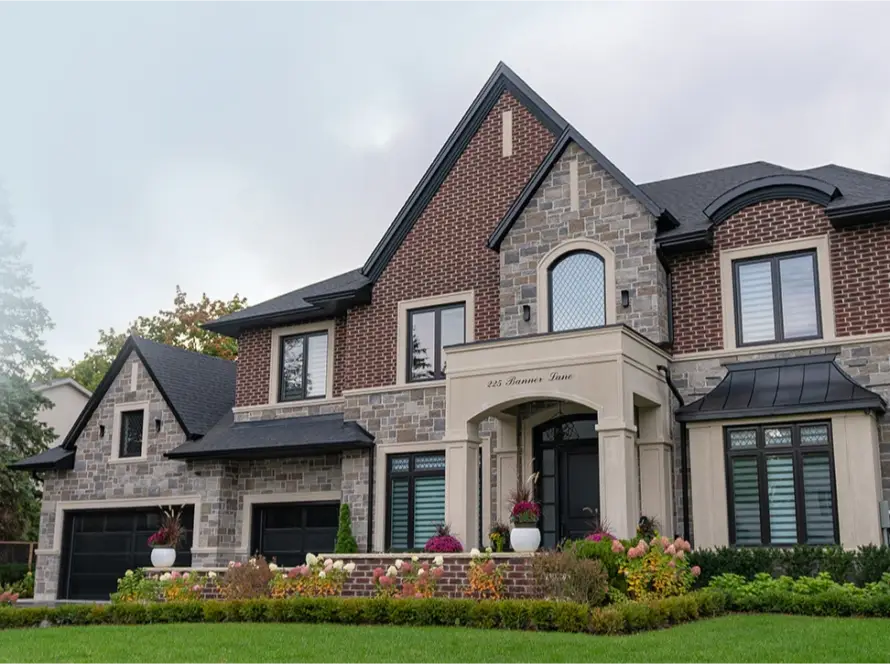This all depends on your budget, energy requirements, and aesthetic preferences.
Practical Considerations:
A common mistake developers make is using the first recommendation an architect – those responsible for renderings, will make for them. Unfortunately, not all architects are familiar with size restrictions of windows and doors, best materials to use in which situation, or what would be considered a custom order vs. a standard pre-fabricated solution. This has the potential to cost the developer of a multiplex, or even bespoke home lots of money.
Material Considerations:
Aluminum is ideal for large glass walls, and very grand entrances. Aluminum has amongst the highest tensile strength, and can bare the brunt of heavy glass sealed units. The draw back here is that in order to get the thermal efficiencies required in most Canadian cities, the glass will need to be thick and in some cases triple pane and tempered. This can be a costly.
Vinyl windows are ideal for multi-unit rental properties that need to meet strict efficiency requirements. Vinyl windows are generally the most cost effective when compared to aluminum or fiberglass. The draw back with vinyl is that they have hard limits on how large individual windows can get. Also, in most Canadian cities, you may not be permitted to use vinyl windows if your project exceeds 4-6 stories.
Fiberglass windows are great when considering restoring historical properties. They have the capacity to mimic wood textures. They provide great insulation, however they can be costly as well.
Longevity and warranty considerations:
If you are developing a rental property, you are not covered be the Tarion insurance policy. Therefore, working with a local supplier will be beneficial in the event a warranty related issue may arise. Buying from a foreign supplier may sound appealing due to upfront cost savings, however there is usually no/limited warranty on their windows or door products. Further, the buyer of foreign purchased windows should be weary of displayed energy ratings. In Canada we have a stringent process to certify the suppliers making window and door products with trackable NRCAN (Natural Resources Canada) number. This guarantees that the values advertised are accurate. When it comes to compliance, the worst thing for a developer is to find out that the product they purchased will not pass inspection.
Interlink Doors & Windows works diligently with developers to mitigate costs, while finding the right product that works best for them. This year we will be attending the Missing Middle Conference in Toronto, where many prominent builders and high level politicians will be working actively to address housing/building concerns in the GTA.
Check them out here:





